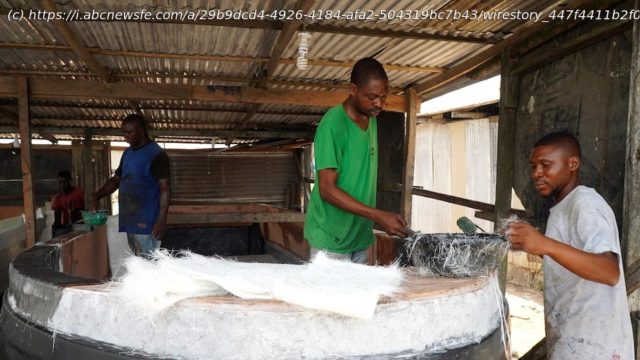The coastal Nigerian community of Ayetoro has been nicknamed “Happy City,” founded decades ago as a Christian utopia
The coastal Nigerian community of Ayetoro was founded decades ago and nicknamed “Happy City,” meant to be a Christian utopia that would be sinless and classless. But now its remaining residents can do little against the rising sea.
Buildings have sunk into the Atlantic Ocean, an increasingly common image along the vulnerable West African coast. Old timber pokes from the waves like rotten teeth. Shattered foundations line the shore. Waves break against abandoned electrical poles.
For years, low-lying nations have warned the world about the existential threat of rising seas. Nigeria, Africa’s most populous country, struggles to respond. Some plans to address shoreline protection, even for Ayetoro, have come to nothing in a nation where corruption and mismanagement is widespread.
Prayers against the rising sea are „on the lips of everybody“ in the church every Sunday, according to youth leader Thompson Akingboye. But they know the solution will require far more.
Even the church has been relocated away from the sea, twice. “The present location is now also threatened, with the sea just 30 meters (98 feet) away,” Akingboye said.
Thousands of people have left. Of those who remain, Stephen Tunlese can only gaze from a distance at the remnants of his clothing shop.
Tunlese said he lost an investment of eight million naira, or the equivalent of $5,500, to the sea. Now he adapts to a watery future. He repairs canoes.
„I will stay in Ayetoro because this is my father’s land, this is heritage land“, he said.






